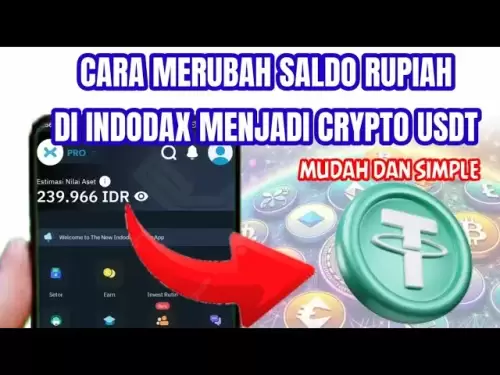-
 Bitcoin
Bitcoin $107,443.3008
-1.17% -
 Ethereum
Ethereum $2,494.2503
-0.63% -
 Tether USDt
Tether USDt $1.0003
0.00% -
 XRP
XRP $2.2496
2.23% -
 BNB
BNB $658.7569
0.63% -
 Solana
Solana $154.9826
1.94% -
 USDC
USDC $1.0000
0.01% -
 TRON
TRON $0.2799
1.07% -
 Dogecoin
Dogecoin $0.1659
-1.78% -
 Cardano
Cardano $0.5745
0.25% -
 Hyperliquid
Hyperliquid $39.7005
0.13% -
 Bitcoin Cash
Bitcoin Cash $519.5989
3.78% -
 Sui
Sui $2.7874
-2.40% -
 Chainlink
Chainlink $13.3762
-1.69% -
 UNUS SED LEO
UNUS SED LEO $9.0784
-0.64% -
 Avalanche
Avalanche $17.9846
-2.81% -
 Stellar
Stellar $0.2390
-0.06% -
 Toncoin
Toncoin $2.9028
0.25% -
 Shiba Inu
Shiba Inu $0.0...01147
-2.17% -
 Litecoin
Litecoin $86.6956
-1.27% -
 Hedera
Hedera $0.1508
-0.50% -
 Monero
Monero $322.6222
3.26% -
 Polkadot
Polkadot $3.4124
-2.99% -
 Dai
Dai $0.9999
0.00% -
 Bitget Token
Bitget Token $4.5434
-1.97% -
 Ethena USDe
Ethena USDe $1.0002
0.00% -
 Uniswap
Uniswap $7.1562
-2.61% -
 Aave
Aave $275.8830
-1.02% -
 Pepe
Pepe $0.0...09790
-4.04% -
 Pi
Pi $0.5018
-5.09%
Do decentralized wallets require real-name authentication?
Decentralized wallets don't require real-name authentication, aligning with crypto's privacy ethos, but some dApps might impose KYC for compliance.
Apr 06, 2025 at 02:56 am
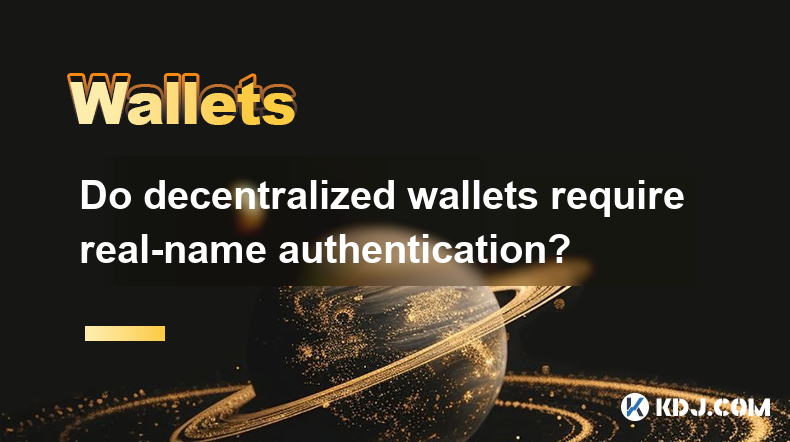
Decentralized wallets, often referred to as non-custodial wallets, are a cornerstone of the cryptocurrency ecosystem. They allow users to maintain full control over their private keys and, consequently, their digital assets. A common question that arises in the context of these wallets is whether they require real-name authentication. This article aims to explore the nature of decentralized wallets, their operational principles, and the extent to which real-name authentication is involved in their use.
Decentralized wallets operate on blockchain technology, which is inherently designed to be decentralized and anonymous. The primary function of these wallets is to enable users to interact with various blockchains without the need for intermediaries like banks or centralized exchanges. Unlike centralized platforms, where real-name authentication is often mandatory to comply with regulatory requirements such as KYC (Know Your Customer) and AML (Anti-Money Laundering), decentralized wallets typically do not require users to disclose their personal information.
The Nature of Decentralized Wallets
Decentralized wallets are software applications that enable users to manage their cryptocurrencies directly. They come in various forms, including desktop, mobile, and hardware wallets. The key feature of these wallets is that they do not store the user's private keys on a third-party server. Instead, the keys are stored locally on the user's device or, in the case of hardware wallets, on a physical device that the user controls.
The operation of decentralized wallets is based on the principles of blockchain technology. When a user initiates a transaction, it is signed with their private key and broadcast to the blockchain network. The network then verifies the transaction and, if valid, adds it to the blockchain. This process does not require any personal identification, as the transactions are pseudonymous, meaning they are linked to cryptographic addresses rather than real-world identities.
Real-Name Authentication and Decentralized Wallets
The question of whether decentralized wallets require real-name authentication can be answered with a general "no." Most decentralized wallets do not require users to undergo any form of identity verification. This is in line with the ethos of decentralization and privacy that underpins the cryptocurrency movement. Users can create and use these wallets without providing any personal information, which is a significant draw for those who value anonymity and privacy.
However, there are exceptions and nuances to consider. Some decentralized applications (dApps) that integrate with decentralized wallets may require users to connect their wallets to access certain features or services. In such cases, while the wallet itself does not require real-name authentication, the dApp might impose its own requirements. For instance, a decentralized exchange (DEX) might require users to complete KYC procedures to comply with local regulations.
Regulatory Considerations
While decentralized wallets generally do not require real-name authentication, regulatory environments can influence their use. In some jurisdictions, authorities are increasingly scrutinizing the cryptocurrency space and may impose regulations that affect how decentralized wallets are used. For example, certain countries might require wallet providers to implement KYC procedures or report suspicious activities, which could indirectly impact users.
It's important for users to stay informed about the regulatory landscape in their region. Engaging with decentralized wallets in countries with stringent regulations might require users to take additional steps to ensure compliance. However, the decentralized nature of these wallets means that users can often choose to use them in jurisdictions with more lenient regulations.
Security and Privacy Implications
The lack of real-name authentication in decentralized wallets is a double-edged sword. On one hand, it offers users a high degree of privacy and control over their digital assets. Users can transact without fear of their personal information being exposed or tracked. On the other hand, this anonymity can also make it more challenging to recover lost or stolen funds, as there is no centralized authority to turn to for assistance.
To mitigate these risks, users must take responsibility for securing their private keys. This includes using strong passwords, enabling two-factor authentication where available, and storing keys in secure locations. Additionally, users should be cautious when interacting with dApps and only connect their wallets to trusted platforms to avoid potential security breaches.
Examples of Decentralized Wallets
To illustrate the variety and functionality of decentralized wallets, consider the following examples:
MetaMask: A popular browser extension and mobile app that allows users to interact with Ethereum and other EVM-compatible blockchains. It does not require real-name authentication and focuses on user control over private keys.
Trezor: A hardware wallet that provides offline storage for private keys, offering an additional layer of security. Users can use it with various cryptocurrencies without disclosing personal information.
Trust Wallet: A mobile wallet that supports a wide range of cryptocurrencies and integrates with numerous dApps. It prioritizes user privacy and does not require real-name authentication for basic use.
These examples demonstrate that decentralized wallets can be used without real-name authentication, aligning with the broader principles of cryptocurrency and blockchain technology.
User Responsibilities and Best Practices
Given the autonomy provided by decentralized wallets, users must adopt best practices to ensure the security and privacy of their assets. Here are some key responsibilities and tips:
Backup Your Private Keys: Always keep multiple secure backups of your private keys. Consider using physical copies stored in safe locations.
Use Strong Passwords: Employ strong, unique passwords for your wallet and any associated accounts. Avoid reusing passwords across different platforms.
Enable Two-Factor Authentication (2FA): Whenever possible, enable 2FA to add an extra layer of security to your wallet access.
Be Wary of Phishing: Be cautious of phishing attempts, which are common in the crypto space. Always verify the authenticity of websites and dApps before connecting your wallet.
Regularly Update Software: Keep your wallet software and any related applications up to date to protect against known vulnerabilities.
By following these practices, users can maximize the benefits of decentralized wallets while minimizing the risks associated with their use.
Future Trends and Developments
The landscape of decentralized wallets is continually evolving, driven by advancements in blockchain technology and changing regulatory environments. One emerging trend is the integration of decentralized identity solutions, which could potentially allow users to prove their identity without revealing personal information. These solutions aim to balance the need for privacy with the requirements of regulatory compliance.
Another development is the rise of multi-signature wallets, which require multiple private keys to authorize a transaction. This enhances security and can be used to implement more sophisticated governance models within decentralized organizations. As these technologies mature, they may further influence the use and perception of real-name authentication in the context of decentralized wallets.
Common Questions and Answers
Q: What is a decentralized wallet?
A: A decentralized wallet, also known as a non-custodial wallet, is a software application that allows users to manage their cryptocurrencies directly. It stores private keys on the user's device, enabling full control over digital assets without the need for intermediaries.
Q:
A: Generally, no. Decentralized wallets do not require real-name authentication. Users can create and use these wallets without providing personal information, aligning with the principles of privacy and decentralization.
Q: Are there any situations where real-name authentication might be required with decentralized wallets?
A: Yes, some decentralized applications (dApps) that integrate with decentralized wallets might require users to complete real-name authentication to access certain features or comply with local regulations. However, this is a requirement of the dApp, not the wallet itself.
Q: How can users ensure the security of their decentralized wallets?
A: Users can ensure the security of their decentralized wallets by backing up their private keys, using strong passwords, enabling two-factor authentication, being wary of phishing attempts, and regularly updating their wallet software.
Q: What are some popular decentralized wallets?
A: Popular decentralized wallets include MetaMask, Trezor, and Trust Wallet. Each offers different features but maintains the core principle of user control over private keys without requiring real-name authentication.
Q: How might future developments affect the use of decentralized wallets?
A: Future developments such as decentralized identity solutions and multi-signature wallets could enhance both the security and privacy of decentralized wallets. These advancements may also influence how real-name authentication is approached in the context of regulatory compliance.
Disclaimer:info@kdj.com
The information provided is not trading advice. kdj.com does not assume any responsibility for any investments made based on the information provided in this article. Cryptocurrencies are highly volatile and it is highly recommended that you invest with caution after thorough research!
If you believe that the content used on this website infringes your copyright, please contact us immediately (info@kdj.com) and we will delete it promptly.
- Solana, Pepe Coin, Crypto Meme Mania: What's Hot and What's Not?
- 2025-07-01 19:10:12
- Bitcoin Cash Price Pump: Unpacking the Reasons Behind the Surge
- 2025-07-01 18:30:12
- Dogecoin's Wild Ride: Rally Potential Amidst Investor Panic?
- 2025-07-01 19:10:12
- Algorand, Wormhole, and Interoperability: A New Dawn for DeFi
- 2025-07-01 19:15:12
- CATL's Indonesian Battery Blitz: A 6 Billion Dollar Bet on the Future
- 2025-07-01 19:20:14
- Bitcoin, PEP-20, and the Token Standard Revolution: Is Bitcoin Pepe the Next Big Thing?
- 2025-07-01 18:30:12
Related knowledge
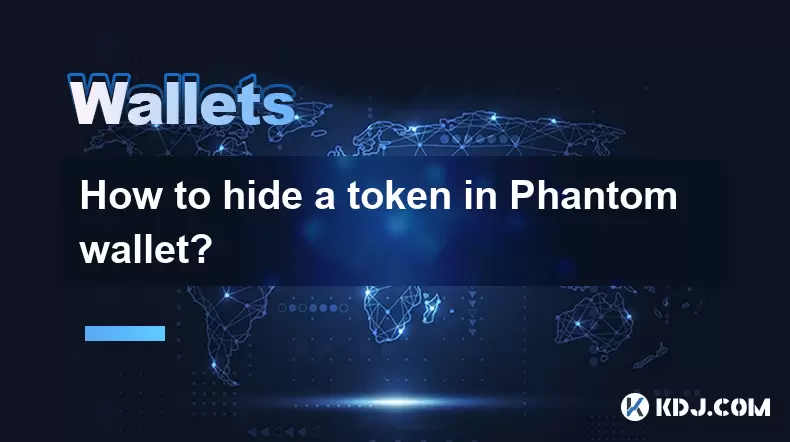
How to hide a token in Phantom wallet?
Jul 01,2025 at 05:49pm
Understanding the Phantom Wallet InterfacePhantom wallet is a popular non-custodial wallet used primarily for interacting with the Solana blockchain. It allows users to store, send, receive, and manage various tokens, including both fungible and non-fungible tokens (NFTs). Before attempting to hide a token, it's essential to understand how the wallet in...
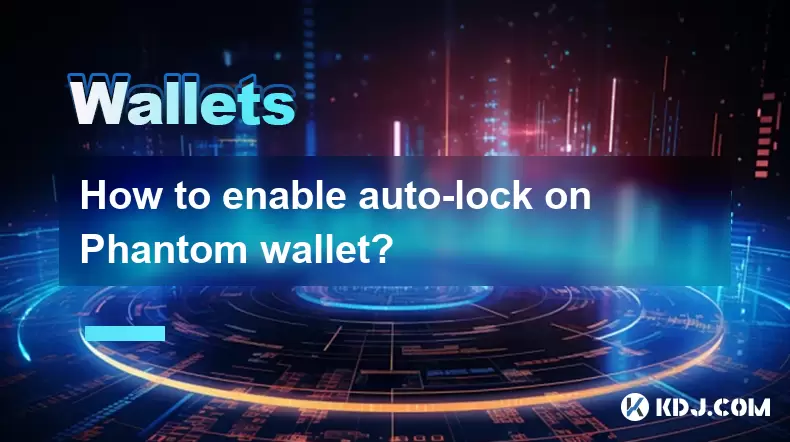
How to enable auto-lock on Phantom wallet?
Jul 01,2025 at 04:01pm
What is Auto-Lock in Phantom Wallet?Phantom wallet is a popular non-custodial cryptocurrency wallet used primarily for interacting with the Solana blockchain. One of its security features includes the ability to set an auto-lock timer, which ensures that the wallet locks itself automatically after a period of inactivity. Auto-lock enhances security by p...
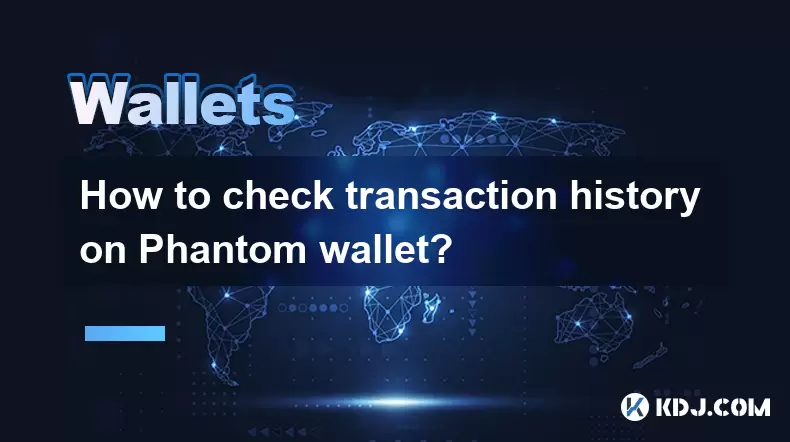
How to check transaction history on Phantom wallet?
Jul 01,2025 at 07:49pm
What Is Phantom Wallet?Phantom wallet is a popular non-custodial cryptocurrency wallet primarily used for interacting with the Solana blockchain. It allows users to store, send, receive, and manage their Solana-based tokens and NFTs securely. One of the essential features of any crypto wallet is the ability to check transaction history. Understanding ho...
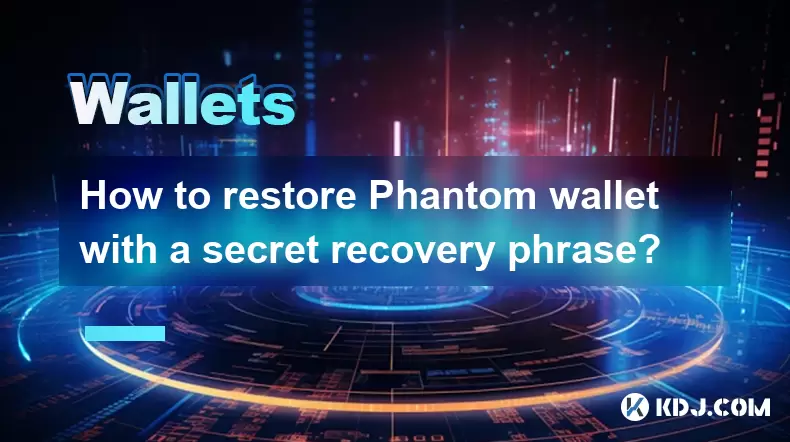
How to restore Phantom wallet with a secret recovery phrase?
Jul 01,2025 at 02:56pm
What is a Phantom wallet and why might you need to restore it?Phantom is a popular non-custodial cryptocurrency wallet primarily used for interacting with the Solana blockchain. It allows users to store, send, receive, and stake SOL tokens as well as manage NFTs and other SPL tokens. Since Phantom wallet is non-custodial, users are solely responsible fo...
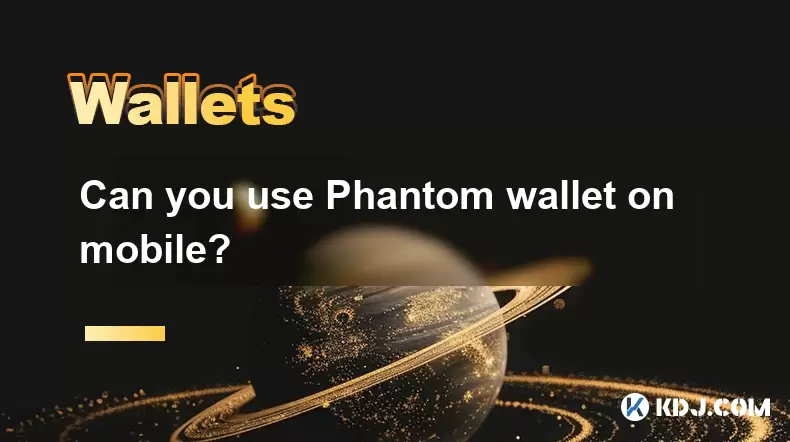
Can you use Phantom wallet on mobile?
Jul 01,2025 at 06:07pm
Understanding Phantom Wallet and Its Mobile CompatibilityPhantom wallet is a non-custodial cryptocurrency wallet primarily designed for interacting with the Solana blockchain. Initially developed as a browser extension, Phantom has expanded its functionality to include mobile platforms. This means users can access their Solana-based assets on mobile dev...
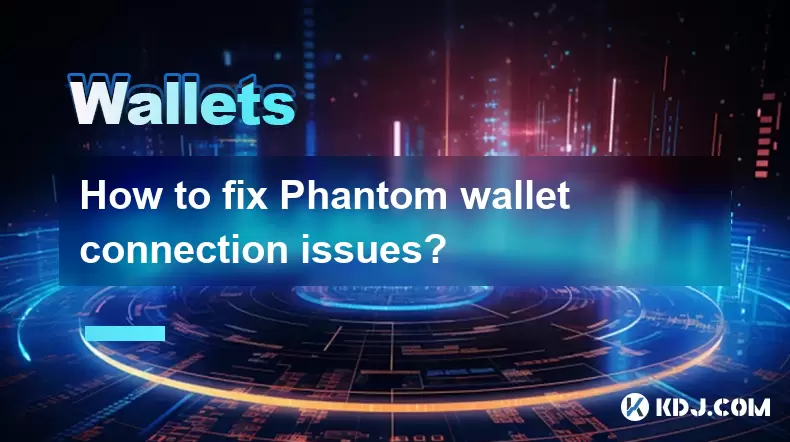
How to fix Phantom wallet connection issues?
Jul 01,2025 at 02:21pm
Understanding Phantom Wallet Connection IssuesPhantom wallet is one of the most popular non-custodial wallets for interacting with Solana-based decentralized applications (dApps). However, users occasionally face connection problems when trying to link their wallet to a dApp or platform. These issues can manifest as error messages, failed connection att...

How to hide a token in Phantom wallet?
Jul 01,2025 at 05:49pm
Understanding the Phantom Wallet InterfacePhantom wallet is a popular non-custodial wallet used primarily for interacting with the Solana blockchain. It allows users to store, send, receive, and manage various tokens, including both fungible and non-fungible tokens (NFTs). Before attempting to hide a token, it's essential to understand how the wallet in...

How to enable auto-lock on Phantom wallet?
Jul 01,2025 at 04:01pm
What is Auto-Lock in Phantom Wallet?Phantom wallet is a popular non-custodial cryptocurrency wallet used primarily for interacting with the Solana blockchain. One of its security features includes the ability to set an auto-lock timer, which ensures that the wallet locks itself automatically after a period of inactivity. Auto-lock enhances security by p...

How to check transaction history on Phantom wallet?
Jul 01,2025 at 07:49pm
What Is Phantom Wallet?Phantom wallet is a popular non-custodial cryptocurrency wallet primarily used for interacting with the Solana blockchain. It allows users to store, send, receive, and manage their Solana-based tokens and NFTs securely. One of the essential features of any crypto wallet is the ability to check transaction history. Understanding ho...

How to restore Phantom wallet with a secret recovery phrase?
Jul 01,2025 at 02:56pm
What is a Phantom wallet and why might you need to restore it?Phantom is a popular non-custodial cryptocurrency wallet primarily used for interacting with the Solana blockchain. It allows users to store, send, receive, and stake SOL tokens as well as manage NFTs and other SPL tokens. Since Phantom wallet is non-custodial, users are solely responsible fo...

Can you use Phantom wallet on mobile?
Jul 01,2025 at 06:07pm
Understanding Phantom Wallet and Its Mobile CompatibilityPhantom wallet is a non-custodial cryptocurrency wallet primarily designed for interacting with the Solana blockchain. Initially developed as a browser extension, Phantom has expanded its functionality to include mobile platforms. This means users can access their Solana-based assets on mobile dev...

How to fix Phantom wallet connection issues?
Jul 01,2025 at 02:21pm
Understanding Phantom Wallet Connection IssuesPhantom wallet is one of the most popular non-custodial wallets for interacting with Solana-based decentralized applications (dApps). However, users occasionally face connection problems when trying to link their wallet to a dApp or platform. These issues can manifest as error messages, failed connection att...
See all articles

























